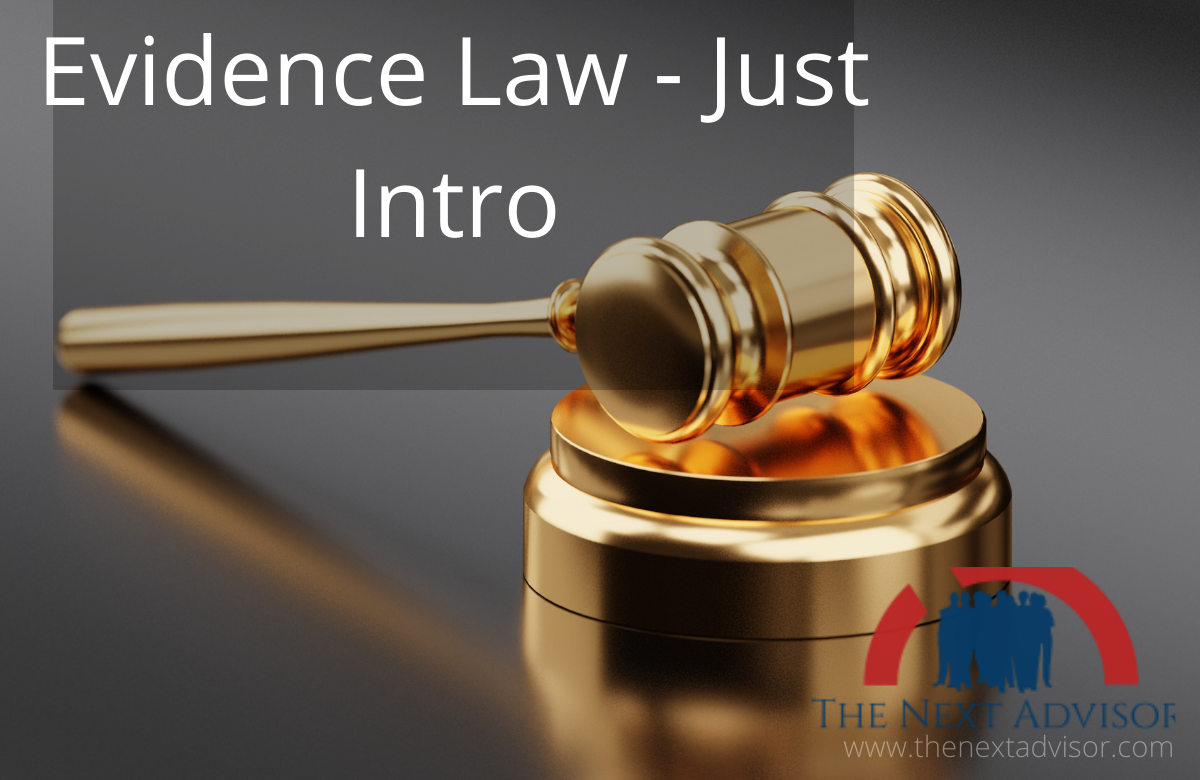Hello, today I will give you just a normal intro about the Evidence act which will help you to understand the basic nature of The Indian Evidence Act 1872. The law of proof, otherwise called the standards of proof, includes the guidelines and lawful standards overseeing the verification of realities in a judicial action. These principles figure out what proof should or should not be considered by the trier of reality in arriving at its choice. The trier of truth is an adjudicator in seat preliminaries or the jury in aby cases including a jury.
The law of proof is additionally worried about the quantum, quality, and kind of evidence expected to win in the suit. Significant standards that oversee acceptability, concern noise, confirmation, pertinence, advantage, witnesses, assessments, master declaration, ID, and rules of actual proof. There are different principles of proof. Principles showing how solid the proof should be to meet the legitimate weight of verification in a given circumstance, going from sensible doubt to prevalence of the proof, clear and persuading proof, or without question.
In each locale (a place where something happens or is set, or that has particular events associated with it.) -dependent on the English precedent-based law custom, the proof should adjust to a few standards and limitations to be allowable. Proof should be significant that is, it should be aimed at demonstrating or negating.
There are four kinds of proof perceived by the courts and we will investigate them today. The four kinds of proof perceived by the courts incorporate definite, genuine, tribute, and narrative.
What do you mean by Evidence in law?
As indicated by Section 3 of the Indian Evidence Act 1872, proof methods and incorporates All such explanations which the court permits or should be introduced before it by the observers in association with the issue of reality under request… All such archives including any hardware record are introduced under the watchful eye of the courts for examination. The most remarkable sort of proof, direct proof requires no surmising. The proof alone is the verification.
The three essential principles of confirmation are verification without question, the prevalence of the proof, and clear persuading proof.
Could an individual be seen as blameworthy without proof?
The straight answer is “no”. You can’t be charged and ultimately sentenced in case there is no proof against you. On the off chance that you end up being captured, confined, and charged, there is in all probability reasonable justification or actual proof that focuses on you.
Three principles of proof The essential requirements of tolerability are significance, materiality, and ability. By and large, if the proof is demonstrated to be important, material, and skilled, and isn’t banished by an exclusionary rule, it is acceptable.
Some legal terms
Facts in issues, Relevant Fact, Proved, Disproved, Not proved, presumption, May presume, Shall presume, Conclusive presume are terms which are directly connected with evidence law and they play a very important role to apply evidence law to every Case.
Types of Law-
Direct proof. (Direct Evidence )
Fortuitous proof.- Hanumant v. The State Of Madhya Pradesh. Ashok Kumar v. …(Circumstantial Evidence )
Analogical proof. (Evidence)
Narrative proof. (Anecdotal Evidence )
Character proof.
Illustrative proof. (Demonstrative Evidence )
Computerized/Electronic proof. Sivrajbhan v. Harchandgir. (Digital/Electronic Evidence)
Narrative proof. (Documentary Evidence
It was just an introduction to The Indian Evidence Act 1872, and I think this information is sufficient to know about the basic nature of Evidence Law.





















